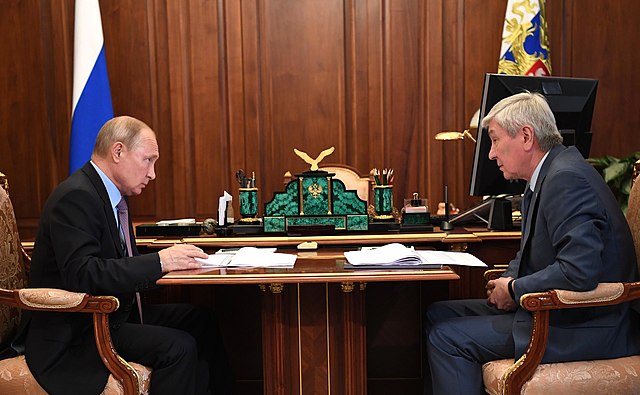The claims were made by Yuri Chikhanchin, the head of Rosfinmonitoring, in an interview with the Russian media outlet Izvestia.
Formally known as the Federal Financial Monitoring Service, Rosfinmonitoring is a Kremlin-run agency that combats money laundering and terrorism funding in the country. Chikhanchin said:
“We are seeing a significant number of transactions being conducted with cryptocurrency: The number of transactions has increased several times over the course of the year. According to our data, the number of [crypto] transactions conducted in Russia in the first nine months of the year exceeded 185,000.”
The agency claimed that in the first nine months of 2022, it had identified 60,000 crypto transactions using its monitoring tools.
Chikhanchin also said that Russians are now sending and receiving more crypto than ever before, conceding that “the volume of transactions” had “almost doubled” this year.
🇷🇺 Russian Politicians Want to Ban Private Citizens from Mining Crypto
A senior Russian politician has claimed that lawmakers want to bar private citizens from mining crypto – but will allow industrial miners to operate.#CryptoNews #Russiahttps://t.co/O50zmLC1UR
— Cryptonews.com (@cryptonews) November 1, 2023
And he urged the government to hurry long-awaited crypto regulation that has been frozen by an impasse between the anti-crypto Central Bank and the more progressive Ministry of Finance. Chikhanchin said:
“Our stance is: The sooner a decision is made, the better. We already know how we will work both if cryptocurrency payments are legalized and if they are completely banned. But we need to understand the rules of the game. A decision must be made as soon as possible.”

How Does Russia Track Crypto Transactions?
Chikhanchin, who was appointed as Rosfinmonitoring head in 2012, spearheaded the development of a tool that the agency claims can de-anonymize and track crypto transactions.
Rosfinmonitoring says the tool is called Transparent Blockchain, and was co-developed with VTB, one of the country’s biggest commercial banks.
Chikhanchin stated that this tool has recently been shared with commercial banks and Russia’s international allies. He said:
“Transparent Blockchain is currently being launched in a number of Central Asian countries. And Arab, African, and Latin American states have shown an interest. It lets banks conduct crypto-compliance. Financial organizations are beginning to use it.”
The Rosfinmonitoring head explained that the tool “makes it possible to identify” both crypto “senders and recipients” for “more than 30 cryptocurrencies.”
He added that the agency was joining forces with its domestic partners to “create a unified database” of “gray addresses” – crypto wallets belonging to suspected money launderers and criminals.
Chikhanchin said this database currently contains details of some “19,000 wallet addresses,” and previously claimed the agency was monitoring around 25,000 Russian crypto holders.
 cryptonews.com
cryptonews.com